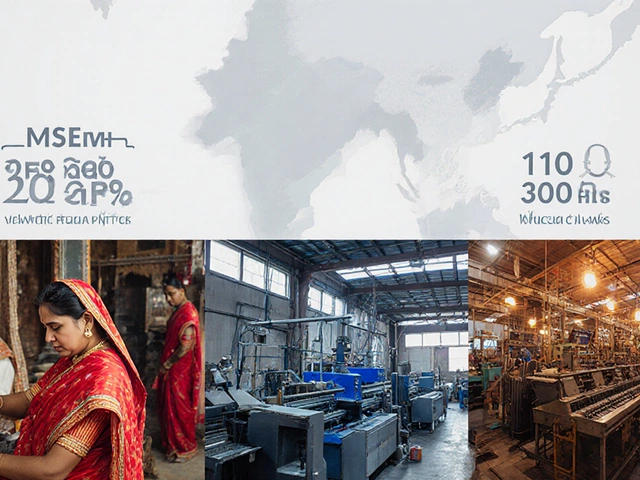TSMC – The Chip Maker That Shapes Modern Manufacturing
When you hear “TSMC”, you’re hearing the name of the world’s largest pure‑play semiconductor foundry. It’s the company that makes the silicon brains for smartphones, cars, data centers and even some HVAC smart controls. If you run a factory or plan to design a new product, knowing how TSMC works can give you big ideas for your own production line.
What TSMC Actually Does
TSMC builds chips for dozens of customers, from big names like Apple to tiny start‑ups. It doesn’t design the chips itself; instead, it provides a high‑tech “factory” where other companies send their designs. The foundry uses advanced tools such as extreme ultraviolet (EUV) lithography to print transistors that are just a few nanometers wide. Because it focuses only on manufacturing, TSMC can invest heavily in clean rooms, automation and yield‑improvement programs.
For a manufacturer, the key takeaway is the power of specialization. By concentrating on one part of the value chain, TSMC can achieve scale, lower costs and rapid innovation. If you’re thinking about outsourcing a part of your process, look for partners that excel in that niche.
Lessons From TSMC for Indian Manufacturers
India’s HVAC and other equipment makers can borrow a few tricks from TSMC’s playbook. First, invest in “clean” processes – whether that means tighter quality checks or better airflow in your plant. Second, use data‑driven monitoring. TSMC places thousands of sensors on its equipment to spot any drift before it becomes a problem. Simple sensor setups can do the same for temperature‑sensitive HVAC components.
Third, think about “fabless” models. Some Indian firms design a new heat‑exchanger but let a specialist build it. This reduces capital spend and lets the design team focus on innovation. Finally, continuous improvement is baked into TSMC’s culture. Short “kaizen” meetings, clear metrics and rewarding small wins keep the line moving forward.
TSMC also shows why location matters. Its factories sit in Taiwan’s “silicon corridor” where universities, suppliers and logistics align. Indian manufacturers can recreate that vibe by clustering around technology parks, linking with engineering colleges and sharing resources with nearby firms.
Overall, TSMC isn’t just a chip maker – it’s a case study in how to scale a high‑tech operation while staying lean. Whether you’re building a new HVAC controller, a solar inverter or a medical device, the principles of specialization, data‑focus, smart outsourcing and ecosystem building can help you grow faster and cheaper.
So next time you hear about a new iPhone chip, remember the behind‑the‑scenes practices that made it possible. Apply those ideas to your own shop floor and watch productivity climb.





